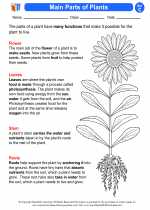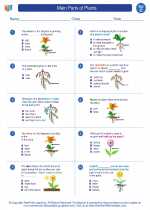Medical Ethics
Medical ethics is a branch of moral philosophy that involves examining the principles and values that govern medical practice and research. It addresses the ethical issues and dilemmas that arise in the field of medicine, including patient care, informed consent, confidentiality, end-of-life care, and the use of technology in healthcare.
Key Principles of Medical Ethics
- Autonomy: Respecting the right of patients to make their own decisions about their healthcare.
- Beneficence: Acting in the best interest of the patient and promoting their well-being.
- Nonmaleficence: Avoiding harm and minimizing risks to the patient.
- Justice: Fair and equitable distribution of healthcare resources and treatment.
- Confidentiality: Protecting the privacy of patient information.
Common Ethical Issues in Medicine
Medical professionals often face ethical dilemmas in their practice. Some common issues include:
- Informed Consent: Ensuring that patients have a thorough understanding of the risks, benefits, and alternatives before consenting to a medical procedure or treatment.
- End-of-Life Care: Making decisions about the use of life-sustaining treatments and respecting the wishes of terminally ill patients.
- Confidentiality: Safeguarding patient privacy and maintaining trust.
- Resource Allocation: Distributing limited resources fairly and ethically, especially in times of crisis or scarcity.
- Professional Integrity: Upholding honesty, integrity, and accountability in medical practice.
Study Guide for Medical Ethics
To understand medical ethics, it is important to learn about the key principles and apply them to real-life scenarios. Here are some study guide tips:
- Read about famous medical ethics cases and analyze the ethical considerations involved in each case.
- Discuss hypothetical scenarios with your peers or a mentor to explore different perspectives on ethical issues in medicine.
- Research the ethical guidelines and codes of conduct established by medical organizations and institutions.
- Stay updated on current events and debates related to medical ethics, such as debates on end-of-life care or the use of emerging technologies in healthcare.
- Consider the cultural, religious, and socioeconomic factors that may influence ethical decision-making in healthcare settings.
By engaging with these study guide tips, you can develop a deeper understanding of medical ethics and its practical applications in the field of medicine.
.◂Science Worksheets and Study Guides Third Grade. Main Parts of Plants
Study Guide Main Parts of Plants
Main Parts of Plants  Activity Lesson
Activity Lesson Main Parts of Plants
Main Parts of Plants  Worksheet/Answer key
Worksheet/Answer key Main Parts of Plants
Main Parts of Plants  Worksheet/Answer key
Worksheet/Answer key Main Parts of Plants
Main Parts of Plants  Worksheet/Answer key
Worksheet/Answer key Main Parts of Plants
Main Parts of Plants  Worksheet/Answer key
Worksheet/Answer key Main Parts of Plants
Main Parts of Plants  Worksheet/Answer key
Worksheet/Answer key This and That
This and That  Vocabulary/Answer key
Vocabulary/Answer key Main Parts of Plants
Main Parts of Plants  Vocabulary/Answer key
Vocabulary/Answer key Main Parts of Plants
Main Parts of Plants 

 Activity Lesson
Activity Lesson
 Worksheet/Answer key
Worksheet/Answer key
 Worksheet/Answer key
Worksheet/Answer key
 Worksheet/Answer key
Worksheet/Answer key
 Worksheet/Answer key
Worksheet/Answer key
 Worksheet/Answer key
Worksheet/Answer key
 Vocabulary/Answer key
Vocabulary/Answer key
 Vocabulary/Answer key
Vocabulary/Answer key

The resources above cover the following skills:
Concepts of Life Science (SC1, SC2, SC3)
The student demonstrates an understanding of the structure, function, behavior, development, life cycles, and diversity of living organisms by observing and comparing external features of plants and of animals that may help them grow, survive, and reproduce.